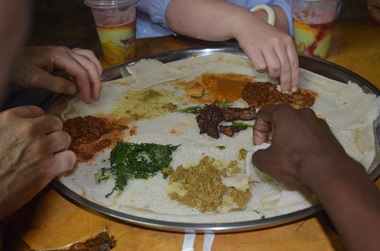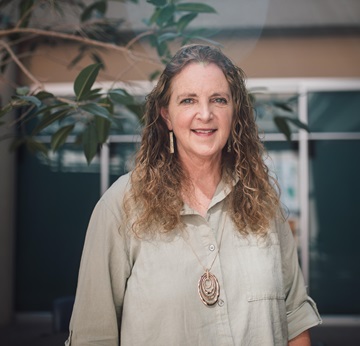 “It does not matter how much I bleed on the page. And I fear I might shed my blood in vain.”
“It does not matter how much I bleed on the page. And I fear I might shed my blood in vain.”
These words, read aloud, pierced my consciousness in our conversation about race, ethnicity and belonging. In a college context in which very diverse people seek to learn together, we are actively pursuing this topic as part of our ongoing discussion of issues that are complex, tender and crucial.
We sat in groups of four or five, eating samosas and sipping herbal tea. And we listened to stories that were requested, and read anonymously, from someone within each grouping: internationals, ethnic minorities and Caucasians. Stories about their experience of belonging – or lack of belonging – within our community, with reference to the role of race and ethnicity.
Each story was brutally honest, raw and riveting.
While much could be said about the broader conversation, what struck me about this particular reading was its refusal – its very refusal to tell any story. Instead, the writer explains, past racial trauma stories
. . . fail to acknowledge the very distance between us. Those stories eclipse what stands between you and me and what makes it so difficult for me to write, to share, to be present. I want us to direct our attention towards understanding this moment. What is between us. Separating us. Right now.
It was like having a magnifying mirror thrust in my face, unexpectedly bringing a painful sharpened focus. What is this moment? How am I to envision and understand this distance? How do I attend to this separation, this space between us, his challenge thrown down like a gauntlet? The writer feared responses of overwhelming feelings, devoid of appropriate care and advocacy, or of dismissal on account of it being “too foreign, too uncomfortable, too open-ended.”
While the situation demands a resolution, he notes, “there isn’t one. Not during this Holy Saturday.”
In considering my own response to what he has written, I will not speak about him or for him, but I will reflect on what his words have deepened in me. I am profoundly stirred by the cost, the courage and the sacrifice in minority voices having to “bleed all over the page” to speak the realities of their experience among us.
I would like to believe I have heard this writer’s soul voice, which prompts an inner movement within my soul and spirit. I wonder if this silent, sacred intertwining of souls draws us both into that very space separating us?
As Geoffrey Cohen observes in Belonging (W.W. Norton & Company, 2022):
In spite of the toxicity of our politics, the betrayals and traumas of our past and the hostilities and injustices in the wider world, many of us have experienced how a single relationship and even a single encounter can be a powerful and healing source of belonging.

Diane Stinton
I honour this (un)story-teller and quote his words:
I was not sure I wanted to bleed. But I still bled. Here is why. The very absence of my presence made manifest demands that my presence be made manifest. Just as the absence of justice demands that there be justice even more urgently. Just as the absence of Messiah demands the hope for Messiah to appear. Just as the absence of Pentecost fulfilled demands that the Holy Ghost be more than a haunting.
Diane Stinton is Dean of Students and Associate Professor of World Christianity at Regent College. She specializes in the study of world Christianity, particularly in theological developments in the global South. She has taught theology for many years in Kenya and is the author of Jesus of Africa: Voices of Contemporary Christology and editor of African Theology on the Way: Current Conversations.
